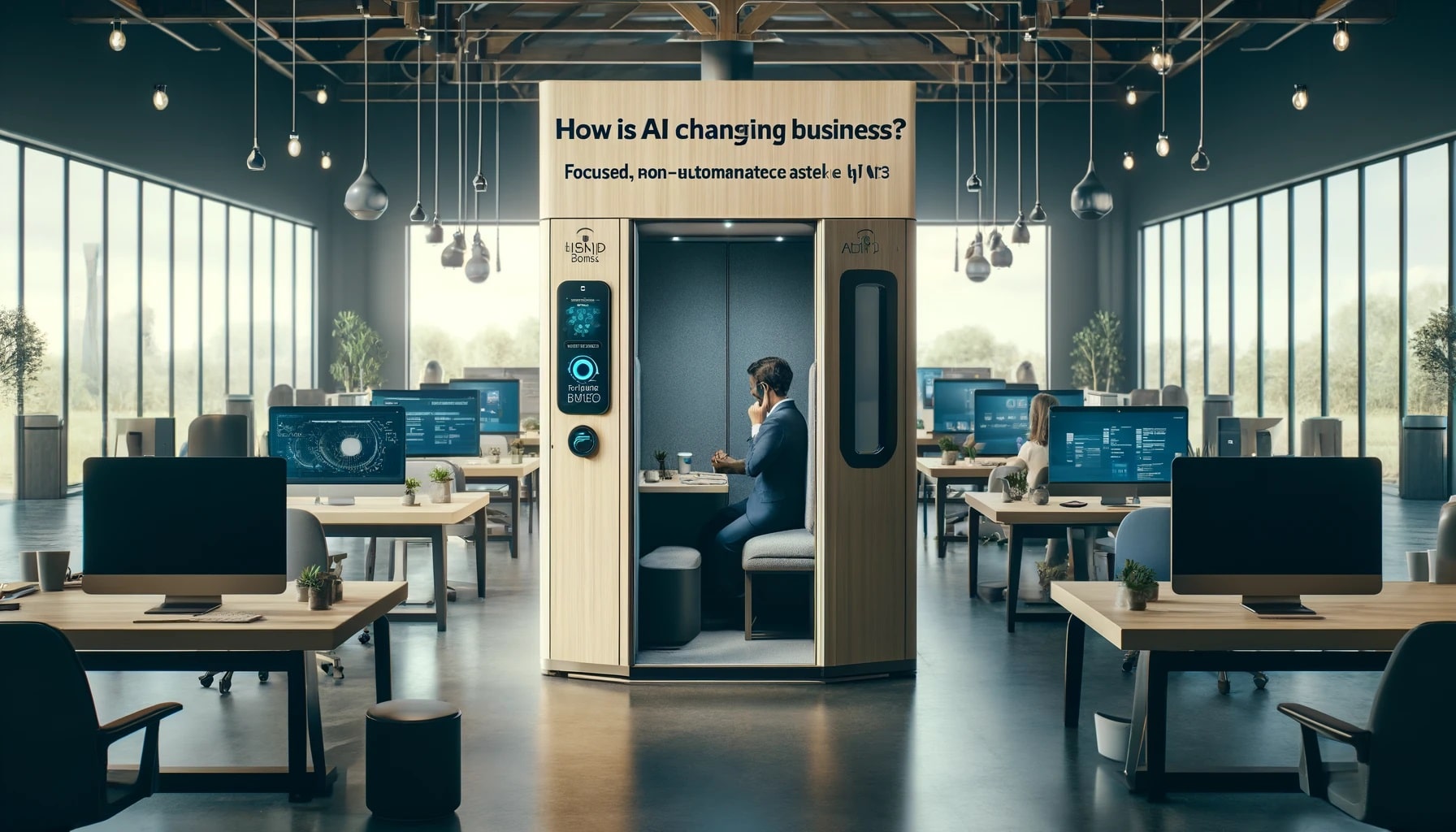Artificial Intelligence (AI) has rapidly evolved from a futuristic concept to a fundamental part of modern business operations. Organizations across the globe are leveraging AI technologies to enhance efficiency, drive innovation, and improve customer experiences. From automating routine tasks to providing insights through advanced data analytics, AI is transforming how businesses operate. Here’s a closer look at how AI is changing the face of business worldwide.
1. Automation of Routine Tasks
One of the most significant impacts of AI on business is the automation of routine and repetitive tasks. AI-powered tools and software are streamlining workflows by handling mundane processes such as data entry, scheduling, and inventory management. This automation not only reduces the likelihood of human error but also frees up employees to focus on more strategic and creative aspects of their roles.
For example, in manufacturing, AI-driven robotics can automate assembly lines, improving production speed and precision. In offices, AI chatbots are managing customer inquiries, allowing customer service representatives to handle more complex issues. This shift toward automation enhances productivity and operational efficiency, leading to cost savings and improved service delivery.
2. Enhanced Data Analytics and Decision Making
AI technologies, particularly machine learning and data analytics, are revolutionizing how businesses analyze data and make decisions. AI algorithms can process vast amounts of data in real-time, uncovering patterns and trends that would be impossible for humans to identify quickly.
Organizations are using AI to gain insights into consumer behavior, market trends, and operational inefficiencies. For example, retailers are leveraging AI to analyze customer purchasing patterns, enabling them to tailor marketing strategies and optimize inventory management. In finance, AI is assisting in risk assessment and fraud detection, improving decision-making processes that protect assets and enhance profitability.
3. Personalized Customer Experiences
AI is reshaping the customer experience by enabling businesses to deliver highly personalized services and products. By analyzing data from various sources, including customer interactions and purchase history, AI can help companies understand individual preferences and tailor their offerings accordingly.
For instance, streaming services like Netflix and Spotify use AI algorithms to recommend content based on user behavior, significantly enhancing user engagement and satisfaction. E-commerce platforms utilize AI to provide personalized product recommendations, increasing conversion rates and customer loyalty. This focus on personalization not only improves customer satisfaction but also drives revenue growth.
4. Improving Operational Efficiency
AI is helping businesses streamline their operations and improve efficiency across various functions. Predictive analytics powered by AI can forecast demand, allowing companies to optimize their supply chains and reduce waste. This capability is particularly valuable in industries such as retail, logistics, and manufacturing, where timely decision-making can lead to significant cost savings.
Moreover, AI-driven tools are enhancing project management by providing insights into team performance and resource allocation. Businesses can use these insights to identify bottlenecks, optimize workflows, and ensure projects stay on track. By harnessing AI, organizations can operate more efficiently and adapt quickly to changing market conditions.
5. Facilitating Innovation
AI is not just about improving existing processes; it is also a catalyst for innovation. Companies are leveraging AI technologies to develop new products, services, and business models that were previously unimaginable. For example, in the healthcare sector, AI is driving advancements in drug discovery and personalized medicine, enabling more effective treatments.
Additionally, AI is playing a crucial role in the development of smart technologies, such as autonomous vehicles and smart home devices. These innovations are not only transforming industries but also creating new markets and opportunities for growth. Organizations that embrace AI are better positioned to lead in their respective fields and capitalize on emerging trends.
6. Enhancing Cybersecurity
As businesses increasingly rely on digital technologies, the importance of cybersecurity cannot be overstated. AI is playing a pivotal role in enhancing cybersecurity measures by identifying and mitigating threats in real time. AI algorithms can analyze network traffic and detect anomalies, allowing organizations to respond to potential breaches swiftly.
Furthermore, AI-driven security systems can learn from past incidents, continuously improving their ability to prevent future attacks. This proactive approach to cybersecurity helps businesses protect sensitive data and maintain customer trust, which is vital in today’s digital landscape.
7. Transforming Human Resources
AI is also changing the way organizations manage their human resources. From recruitment to employee engagement, AI technologies are streamlining HR processes and improving workforce management. AI-driven applicant tracking systems can analyze resumes and match candidates with job openings based on skills and experience, reducing the time and effort involved in hiring.
Moreover, AI can enhance employee engagement by providing personalized learning and development opportunities. Companies can use AI tools to analyze employee performance and recommend training programs that align with individual career goals. This focus on talent development not only boosts employee satisfaction but also drives organizational performance.
Conclusion
AI is undeniably changing the face of business worldwide, reshaping operations, enhancing customer experiences, and driving innovation. As organizations continue to adopt AI technologies, those that leverage these advancements effectively will gain a significant competitive advantage. Embracing AI is not merely a trend; it is an essential strategy for businesses aiming to thrive in an increasingly digital and data-driven world. As we look to the future, the integration of AI into business practices will only deepen, opening up new possibilities for growth and transformation.




